Speech by Françoise Thom, winner of the Prix François Guizot-Institut de France 2022 for her book « La marche à rebours ; regards sur l’histoire soviétique et russe » (Éd. Sorbonne Université Presses), at the award ceremony in the Grande Salle des Séances – Sources: Institut de France & Association François Guizot — Paris, Tuesday, 4 October 2022 —
Table of Contents
Mr. Chancellor of the Institute,
Mr. President of the Association François Guizot,
Ladies and Gentlemen members of the jury of the François Guizot-Institut de France Prize,
Thank you for the honor you do me by granting the Guizot-Institut de France prize to my book La Marche à rebours (The Backward Marsh), which brings together my work over the last thirty years devoted to the history of the USSR and post-Communist.
An intuition of communist totalitarianism
I came to the story sort of accidentally. My vocation led me to classics, particularly Greek literature and philosophy. At the same time as my degree in classics I was preparing for a degree in Russian. My interest in Russia had nothing to do with ideology. The frequentation of the Ancients protected me from the attraction for Marxism of which my generation was the victim. I was fascinated by Russian culture. This is how I obtained a scholarship for studies in Moscow where I finally spent four years from 1973 to 1978. These four years turned my life upside down. A Westerner has great difficulty in perceiving the reality of the totalitarian world.
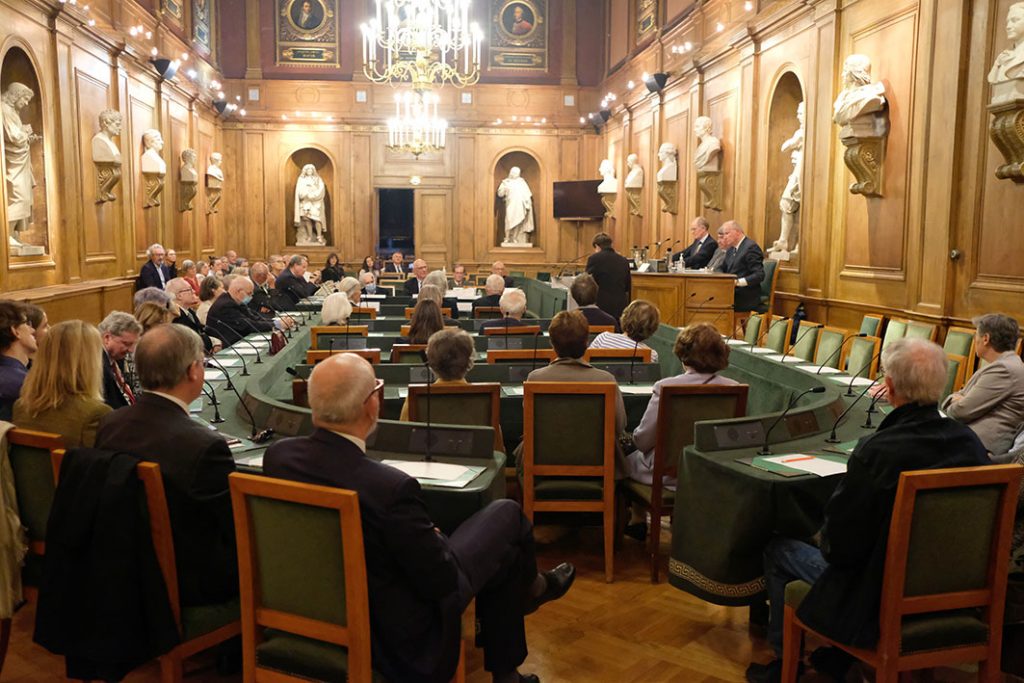
Many repentant communists (for example to A. Koestler) have described in their autobiographies how the reality of the system took a long time to percolate into their consciousness, how much the beginning of understanding was out of step with lived experience. This was also my case. It was the mystery of communism that brought me to history. How did this regime, which made the daily life of its subjects an endless series of trials, which forced people to live in fear and lies, depriving them of intimacy and autonomy, of the thousand little joys of existence, could it have been put in place and above all how could it last?
Understanding communism and the nature of the influence of this deleterious system on Russian society
I wanted to understand communism, the nature of the influence of this deleterious system on society.
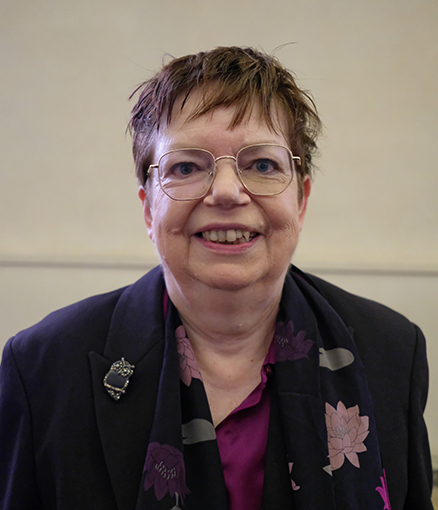
The decadence of the Brezhnev USSR was noticeable during these years. But this USSR, armed to the teeth, remained dangerous: just like my Russian friends, I considered that communism threatened the whole world. At the end of my stay in the USSR I had acquired an intuition of communist totalitarianism. My perception was close to that of the dissidents I frequented, of Solzhenitsyn, whose Gulag Archipelago I had read with transport. It was pity for the dead seeking justice. It was a visceral rejection, the will to obstruct the progress of this regime in the world and in the minds. But I was aware that the intensity of the hatred that communism inspired in me was an obstacle to understanding the phenomenon.
Françoise Thom — Photo © Institut de France
I was discussing it with my Russian friends. I thought that this regime had to be fought with intelligence, courage alone was not enough.
Thinking about communism in a both historical and philosophical perspective
Once back in France I turned to the existing literature on communism.
This is how I discovered The Intellectual Origins of Leninism by Alain Besançon. This book was both a revelation and a relief to me. Alain Besançon seemed to me to have succeeded in what I had aspired to do since my years in Moscow without having the intellectual tools to achieve it, to think about communism by placing it in a perspective that is both historical and philosophical. I became more and more interested in the history of communism and the history of the USSR.
Alain Besançon — Photo © DR
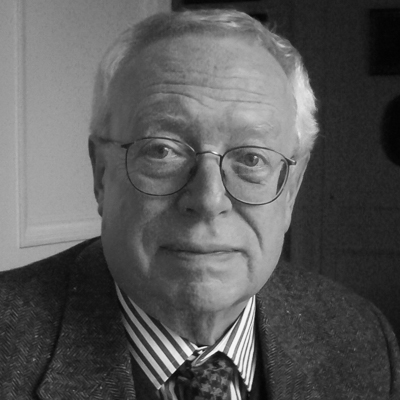
The confrontation between “totalitarians” and “revisionists”
At that time, in the United States and in France, the debate was raging between the « totalitarians », who emphasized the single party, ideology, dictatorship, terror, the enterprise of total control of the society and the « revisionists », according to whom it was necessary to study Soviet society, much more pluralistic and consensual than it seemed at first sight, instead of focusing on the regime.
This debate also had implications for the interpretation of the Cold War: for the “totalitarians” it resulted from the expansionist nature of the USSR due to Marxist-Leninist ideology; for the revisionists, Stalin had an essentially defensive policy and the cold war was attributable to the aggressive policy of the United States to which Stalin only reacted piecemeal.
Without hesitation, I joined the ranks of the totalitarians: their perception was close to that of the Soviet dissidents who had opened my eyes to the reality of communism.
Wondering about the possible factors of evolution of the Soviet regime
The confrontation between “totalitarians” and “revisionists” led me to the first historical problem whose ramifications absorbed me for years.
During my years of stay in the USSR at the time of Brezhnev, I had often wondered about the possible factors of evolution of the Soviet regime.
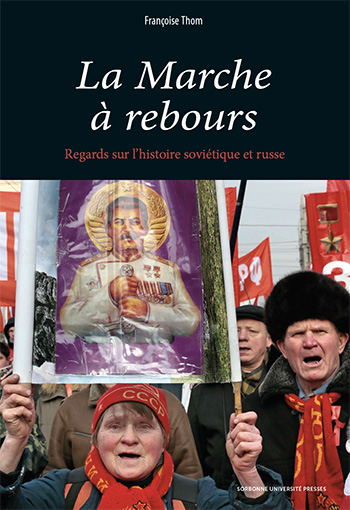
I didn’t see any. Society was too atomized to become a force influencing party policy. The system seemed doomed to rot slowly. I did not conceive that an internal force could put an end to it.
The evolution of the USSR under Gorbachev, at the same time as the opening of the Soviet archives, made me understand that I had underestimated an important factor: the disaffection of the communist elites with regard to the regime from which they were nevertheless the main beneficiaries. I had not seen that many communists wanted to become owners, to dispose without obstacles and in a definitive way of the resources of the State to which they had access.
« La Marche à rebours : regard sur l’histoire soviétique et russe »
The restrictions of all kinds that the Party imposed on its members, including the highest dignitaries, weighed on them. They wanted to travel, buy dachas and apartments, villas on the Côte d’Azur, in short, display their wealth in broad daylight.
Reflecting on the news I began to go back upstream. The nomenklaturist privatization initiated under Gorbachev and continued under Yeltsin stemmed from the growing corruption of the Party apparatus under Brezhnev. There were destabilizing factors for the regime of which I had not taken the full measure. Soon I dug all the way to Stalin and discovered in Beria a shining example of this disaffection, going as far as a bold attempt to dismantle the regime in the spring of 1953.
Knowing how the communist regime could have lasted so long
Thus, having started by asking myself the question of knowing how the communist regime could have lasted, I finally had to ask myself why it had fallen. I came to the conclusion that the very mechanisms of the totalitarian system had ultimately led to its downfall. In the communist regime, the real seizure of power always took place after the accession to the post of first secretary (only Andropov held real power before attaining nominal power). In a sense, the whole perestroika could be reduced to Gorbachev’s will to transform the nominal power acquired in March 1985 into real power, just as Stalin, Khrushchev and Brezhnev had done before him.
It was first the fight against his potential rival Ligachev that prompted Gorbachev to want to dismantle the Secretariat of the Central Committee, the stronghold of the latter, a fatal blow from which the party will not recover. Then the rivalry with Yeltsin comes to the fore and Gorbachev drifts towards the « orthodox » of the Party, trying to slow down the reforms. George Kennan observed as early as 1946 that the absence of a succession mechanism was one of the Achilles heels of the Soviet regime. The Party constituting the only backbone of the communist world, each crisis of succession resulted in profound shocks in the state, the empire and the international communist movement. The Trotsky/Stalin rivalry destabilizes the Comintern. The Beria/Malenkov/Khrushchev conflict resulted in the Berlin uprising in June 1953, then the Hungarian uprising of 1956. With each succession we get closer to the heart of the system: in 1991, during the Gorbachev/Yeltsin rivalry, the heart is affected. To get rid of Gorbachev Yeltsin is forced to abolish the post of President of the USSR – and for that, the easiest way was to liquidate the USSR. Once the mechanism of the physical elimination of adversaries had been abandoned, the Bolshevik logic of the pure relationship of forces, which prevented the State/Communist Party from establishing institutions, could only ultimately lead to the annihilation of the State, but not in the way predicted by Marx and Lenin.
The only communist regime to survive intact today is North Korea, where the problem of succession was solved in the traditional, non-Bolshevik way by creating a dynasty.
My stay in the USSR made me sensitive to the fragility of civilization
My stay in the USSR made me sensitive to the fragility of civilization, a feeling that my generation of sixty-eighters is dramatically lacking. The question that focuses my thoughts after the collapse of communism is whether the fabric of civilization can be rebuilt when it has been destroyed from top to bottom for generations. The immediate answer was that the foundations of civilized existence could be imported from outside, copied as has often been the case in Russia. But was European civilization still strong enough to shine in areas devastated by communism?
What did we have to offer, apart from multiculturalism, communication techniques and vaticinations on the “open society”?
The gangsterization of the post-Communist political class wasn’t the nist going to precipitate a similar process in the West?
Were we not going to witness the convergence of two decadences, of two barbarisms, that of ex-communist Europe and that of the Europe of the welfare state?
Seven decades of communism
I have never shared the optimism of those who thought the game was won in 1992. I have often been criticized for having stuck to the world of the Cold War, for having underestimated the change that operated in Russia. The truth is that I did not forget the ravaged society left behind by seven decades of communism, seven decades of negative selection, systematic debasement and brutalization of human nature.
My pessimism continued to grow during the Yeltsin years and from the first Putin years: quite simply because I saw Russia as a historian, I was sensitive to continuities that did not appear to the naked eye. I saw that the only organized structures that managed to survive during the troubled years were the KGB and the mafias.
Russian institutions are a Potemkin setting
Institutions in Russia were a Potemkin setting. The elections were rigged. Parliament served to provide immunity to criminal authorities.
The parties were segments of the old communist bureaucracy; the division of powers had never taken place: the Leninist logic “who will eliminate the other” inspired the confrontation between Boris Yeltsin and the Supreme Soviet in 1993 which ended with the dissolution of parliament with cannon fire. Power remained autocratic, concentrated out of sight in a small informal circle around the president. The methods by which it was exercised remained those of Bolshevism. And the more time passed, the more the past became present.
A power not based on institutions is always aware of its precariousness, whatever the police apparatus with which it surrounds itself. He becomes paranoid.
Russian leaders continued to think in terms of “spheres of influence” and domination. For them the notion of balance of powers did not exist outside any more than the separation of powers exists inside. The Putin years showed the power of the influence of the Stalinist worldview on the Russians. The idea of the « hostile environment », the idea that opponents represent a fifth column sold abroad, the idea that Western leaders are plotting the dismemberment and looting of Russia, the idea that only a despotic regime can preserve the Russian state – all this has never ceased to irrigate the fearsome Putin propaganda. I have sought to shed light on the causes of this influence. At the same time I wanted to show the particular link between foreign policy and domestic policy in the USSR and in post-communist Russia, the objectives of strengthening personal power always taking precedence over all other considerations. Thus foreign policy developments must always be seen through the prism of power struggles within the Kremlin circle. This particular intertwining of foreign policy and domestic policy persists today.
Masters of the Kremlin reason in terms of a balance of power
Failing to understand the deep springs of Russian policy, Westerners exaggerate the impact of their action on Russia. And because they forget that the masters of the Kremlin reason in terms of a balance of power, they do not realize that concessions to Russia are perceived in Moscow as a sign of weakness and an encouragement to formulate new demands on a your ever more threatening. The evolution of Russian foreign policy is not the result of mistakes made by the West, of alleged “humiliations” inflicted on Russia after the Cold War.
The Kremlin needs an external enemy wielded by propaganda conveying hysterical nationalism to justify the enslavement of society, to make the people accept the systematic looting of the country for the benefit of a handful of privileged people and to force the Russians to maintain the immense parasitic army of the « siloviki ».
With hindsight, lines of force emerged which, beyond the Soviet period, linked the developments in contemporary Russia to a more distant past. The comparison between the functioning of power in today’s Russia and that of the Soviet Union, even of the Russia of the tsars, reveals continuities which help us to better understand both the Soviet regime and the Russia of today, including the dramatic period we are living through.
The outlines of recent – and less recent – Russian history are revealed: the irresistible attraction of the autocratic matrix, which resurfaces as new after each period of turmoil, the close relationship between despotism and imperial expansion, between military defeat and reforms, the destabilization of the state with each succession, the tension between the logic of predation, the desire for autarky and the dream of power; the eternal conflict between economic rationality, obsessive withdrawal and militarization.
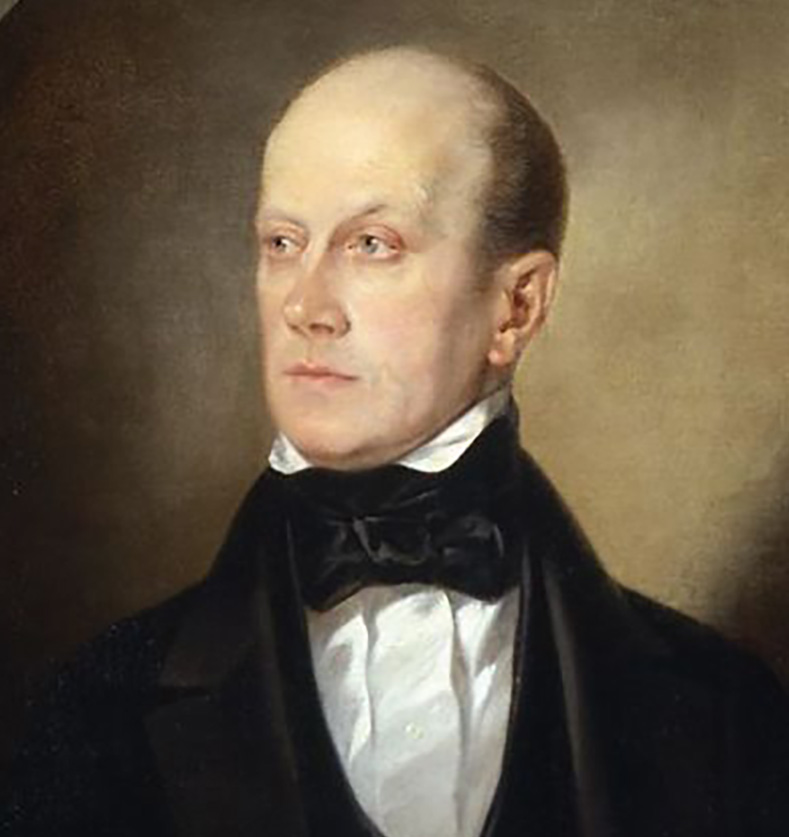
The Russian philosopher Piotr Tchaadaev wrote in 1830: “We have lived, we only live to serve as some great lesson to distant posterities who will understand it. The vicissitudes of Russian history in the 20th and 21st centuries remind us that regimes built on lies, pride and arrogance, the cult of force, the enslavement of populations, contempt for law and common morality, whatever their initial successes, eventually destroy themselves. As Machiavelli noted, criminal princes were able to go unpunished, even pampered by fortune.
Portrait of Piotr Tchaadaev
But the regimes that are driven by a nihilistic passion, that indulge in hubris and the joy of pure nuisance are sooner or later overtaken by nemesis.
Françoise Thom
Françoise Thom, an associate professor of Russian, is an emeritus lecturer (HDR) in contemporary history at Sorbonne University.
A specialist in Russia, she has published, among other things, Le Moment Gorbatchev (Hachette Pluriel, 1989), Les Fins du communisme (Critérion, 1994), a critical edition of Sergo Beria’s memoirs (Plon/Criterion, 1999), as well as “La Russie d’Eltsine à Poutine”, as an afterword to the Histoire de la Russie by Nicholas V. Riasanovsky (Robert Laffont, 2014).
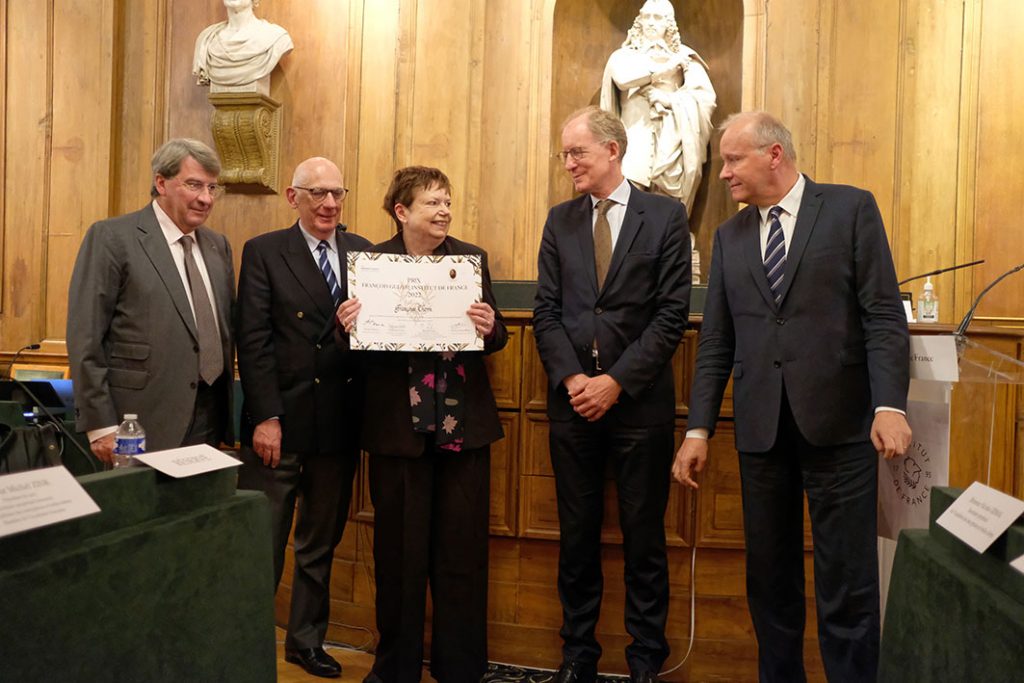
- Discours de Xavier Darcos, chancelier de l‘Institut de France — (2022-10-04) —
- « Prix Guizot -Institut de France 2022 : And the Winner is… Françoise Thom » : Allocution de Stéphane Coste, descendant de François Guizot et président de l’association François Guizot — (2022-10-04) — English pdf version of Stephane Coste’s speech — « The François Guizot-Institut de France Prize 2022 » — (2022-10-04) —
- « La Russie d’avant, la Russie d’après, c’est la Russie de toujours » — Discours de Patrice Gueniffey & « Russia, Forever the Same ? » — Speech by Patrice Gueniffey, vie-president of the jury — (2022-10-04) —
- « Westerners Have Great Difficulty in Perceiving the Reality of the Totalitarian World » : Speech by Françoise Thom, winner of the Prix François Guizot-Institut de France 2022 — & « La Russie d’avant, la Russie d’après, c’est la Russie de toujours » — (2022-10-04) —
- « Russie : Pouvoir autocratique et logique léniniste: Qui va éliminer l’autre ? » — Réponse de Françoise Thom, lauréate du Prix Guizot-Institut de France — « Westerners Have Great Difficulty in Perceiving the Reality of the Totalitarian World » — Speech by Françoise Thom after she was granted the Guizot Price — (2022-10-04) —
Voir également : « Françoise Thom, La marche à rebours. Regards sur l’histoire soviétique et russe » par Andreï Kozovoï in Cahiers du Monde Russe 63/3-4 | 2022, 863-866 — (2022-1202) —










